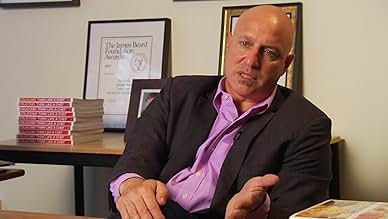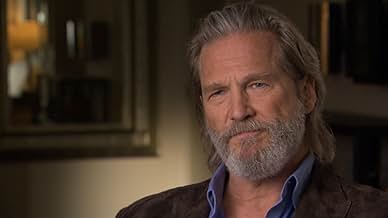IMDb RATING
6.9/10
1.2K
YOUR RATING
A documentary that investigates incidents of hunger experienced by millions of Americans, and proposed solutions to the problem.A documentary that investigates incidents of hunger experienced by millions of Americans, and proposed solutions to the problem.A documentary that investigates incidents of hunger experienced by millions of Americans, and proposed solutions to the problem.
- Awards
- 1 win & 2 nominations total
Jim McGovern
- Self
- (as James McGovern)
Featured reviews
Lori Silverbush and Kristi Jacobson's documentary "A Place at the Table" is a film that every politician - indeed, every citizen - in America should be forced to sit through at least once (or as many times as it takes to get the message to effectively sink in). It makes a very persuasive case that, contrary to what most people think, hunger is a major problem in the United States, a nation that prides itself on being the wealthiest in the history of the world. Not only does the movie provide the startling statistics necessary to back that assertion up, but explains why this is the case.
Silverbush and Jacobson build their case in a meticulous, logical fashion, beginning with the common, counterintuitive fallacy that hungry people necessarily equal thin people. The movie explains how obesity and hunger often go hand in hand, thanks to the fact that, since junk food is cheaper than healthy food to purchase, the poor often fill up on empty calories rather than the nutritious ones that would actually make them healthy. This is a result of a misguided federal policy that provides subsidies for agribusinesses (as opposed to mom-and-pop farmers), who turn their grain and corn into inexpensive processed foods. Since farmers who grow fruits and vegetables work more independently of one another, they don't have the clout necessary to receive similar government support. This leads to a vicious cycle that winds up hurting poor people in both urban and rural areas where "food deserts" arise in which residents can barely find a fresh fruit or vegetable to purchase.
The movie rightly celebrates the many charities that pick up some of the slack, but it makes the case that that is simply not enough, that an entire paradigm shift may be necessary if we ever hope to solve the problem.
Ultimately, what we discover is that hunger is merely a symptom of a much greater set of problems - which are poverty, income inequality and a political system rigged to benefit the wealthy and powerful at the expense of the indigent and disconnected. Above all, the key lies in both the public and private sectors providing a living wage for their workers.
Finally, beyond all the statistics, beyond all the comments by experts and authorities on the subject, it is the voices of the parents, who can't afford to put nutritious food on the table for their children, and of the children themselves, who often go to bed hungry or malnourished, who wind up making the greatest mark on our hearts. It is their testimonials more than anything else that will hopefully move the rest of us to action.
A must-see film.
Silverbush and Jacobson build their case in a meticulous, logical fashion, beginning with the common, counterintuitive fallacy that hungry people necessarily equal thin people. The movie explains how obesity and hunger often go hand in hand, thanks to the fact that, since junk food is cheaper than healthy food to purchase, the poor often fill up on empty calories rather than the nutritious ones that would actually make them healthy. This is a result of a misguided federal policy that provides subsidies for agribusinesses (as opposed to mom-and-pop farmers), who turn their grain and corn into inexpensive processed foods. Since farmers who grow fruits and vegetables work more independently of one another, they don't have the clout necessary to receive similar government support. This leads to a vicious cycle that winds up hurting poor people in both urban and rural areas where "food deserts" arise in which residents can barely find a fresh fruit or vegetable to purchase.
The movie rightly celebrates the many charities that pick up some of the slack, but it makes the case that that is simply not enough, that an entire paradigm shift may be necessary if we ever hope to solve the problem.
Ultimately, what we discover is that hunger is merely a symptom of a much greater set of problems - which are poverty, income inequality and a political system rigged to benefit the wealthy and powerful at the expense of the indigent and disconnected. Above all, the key lies in both the public and private sectors providing a living wage for their workers.
Finally, beyond all the statistics, beyond all the comments by experts and authorities on the subject, it is the voices of the parents, who can't afford to put nutritious food on the table for their children, and of the children themselves, who often go to bed hungry or malnourished, who wind up making the greatest mark on our hearts. It is their testimonials more than anything else that will hopefully move the rest of us to action.
A must-see film.
After watching this documentary, all I can say is, some Americans are downright HYPOCRITES. By pushing their pretensions to help the world, with setup movies and all the Cr*** that we see
The most chocking part is that, we can never see those faces in world vision add! But they exist.
Now, Africa does not look so bad after all 50millions in one country? That almost the same for Africa (the continent) with over 50 something countries in it. Instead of American government to admit and call it what it is starvation, like always they plays with words "food insecurity" hum How is it possible to let my own family starve and give food to my neighbour's?
The most chocking part is that, we can never see those faces in world vision add! But they exist.
Now, Africa does not look so bad after all 50millions in one country? That almost the same for Africa (the continent) with over 50 something countries in it. Instead of American government to admit and call it what it is starvation, like always they plays with words "food insecurity" hum How is it possible to let my own family starve and give food to my neighbour's?
To the people going on about, and snubbing that "obese people just drink soda etc." you really miss the point. So much about hunger, and this documentary pertains to ACCESS. Why in the richest country in the world are there food deserts? It's all great to say, eat broccoli instead of chips, but in many parts of the world, the chips are the cheaper, and only food available. Why? We can not all afford or even have access to organic, lush foods. That is part of the problem. Not to mention lack of liveable wages. And, why should the church be solving the problem of hunger? Our ideology devalues human life. Years later if the Covid pandemic has taught us nothing, it's that most people are a just a pay check away from being food insecure. It has zero to do with weight, or laziness or whatever myopic excuses people who apparently never suffered a day in their life, portend to make it about.
A Place at the Table is a documentary that looks at hunger in America. The film follows several families and their struggles to fill their plates day after day. Band-aid fixes are just not cutting it. The problem of hunger in America is just getting worse. The film is a sobering look at the reality that many Americans face.
This documentary should be seen by everyone who think that the economic system in the US is a perfect one. It also shows how much the people that actually generates wealth are exploited, just for the record bankers, financiers and the stock-market don't generate wealth, its the people that make products and services that benefit humankind that generates wealth.This of course comes from a guy that most Americans would consider a communist.
It warns about the future problems that the US might face if this type of problem is as prevalent as it depicts( I don't know all the facts behind this film ). If it is accurate then I hope for the people in the US will fix it instead of hope for the stock-market to fix it, it will not do that.
It warns about the future problems that the US might face if this type of problem is as prevalent as it depicts( I don't know all the facts behind this film ). If it is accurate then I hope for the people in the US will fix it instead of hope for the stock-market to fix it, it will not do that.
Did you know
- TriviaThe original title for this documentary was "Hungry in America."
- ConnectionsFeatured in Moyers & Company: United States of ALEC: A Follow-Up (2013)
Details
- Release date
- Country of origin
- Official site
- Language
- Also known as
- Mesto za stolom
- Filming locations
- Collbran, Colorado, USA(main location)
- Production companies
- See more company credits at IMDbPro
Box office
- Gross US & Canada
- $231,378
- Opening weekend US & Canada
- $92,257
- Mar 3, 2013
- Gross worldwide
- $231,378
- Runtime
- 1h 24m(84 min)
- Color
- Aspect ratio
- 1.78 : 1
Contribute to this page
Suggest an edit or add missing content








































